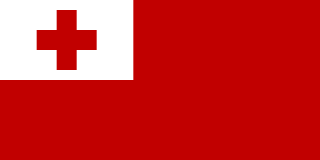The Ocean of Light International School, located in Tonga, is a private international Bahá'í school dedicated to the development of the spiritual, intellectual, and physical potential of the students and to the fostering of a new world society identifying itself with the principles of a world citizenship, a universal value system, a world embracing administrative, economic, social and educational systems based on the concept of unity in diversity, established in 1996. [1] To achieve this the School aims to develop in the students those capacities, skills, habits and attitudes necessary to enable them to provide for their families; to effectively contribute to the peace, prosperity and tranquillity of mankind and society; and to participate in the creation of new institutions, processes and relationships as they are defined and established.

Tonga, officially the Kingdom of Tonga, is a Polynesian country and archipelago comprising 169 islands, of which 36 are inhabited. The total surface area is about 750 square kilometres (290 sq mi) scattered over 700,000 square kilometres (270,000 sq mi) of the southern Pacific Ocean. The sovereign state has a population of 100,651 people, of whom 70% reside on the main island of Tongatapu.

An international school is a school that promotes international education, in an international environment, either by adopting a curriculum such as that of the International Baccalaureate, Edexcel or Cambridge International Examinations, or by following a national curriculum different from that of the school's country of residence.

A Bahá'í school at its simplest would be a school run officially by the Bahá'í institutions in its jurisdiction and may be a local class or set of classes, normally run weekly where children get together to study about Bahá'í teachings, Bahá'í central figures, or Bahá'í administration. Bahá'í topics may be minimized in favor of a general curriculum, often with an internationalist form, with accreditation from a variety of sources.
Contents
The School is directly administered by a non-profit Board of Education nominated by the National Spiritual Assembly of the Baha'is of Tonga. The school is known as a Baha'i school and is striving to incorporate Baha'i ideals, principles and concepts into the curriculum and organization of the school. The school is located in Kolomotu’a / Hofoa - about 3 kilometers from the centre of Nukuʻalofa. It offers classes from kindergarten (3 years old) to high school diploma using Cambridge International Examinations including the International General Certificate of Secondary Education.
The Bahá'í teachings represent a considerable number of theological, social, and spiritual ideas that were established in the Bahá'í Faith by Bahá'u'lláh, the founder of the religion, and clarified by successive leaders including `Abdu'l-Bahá, Bahá'u'lláh's son, and Shoghi Effendi, `Abdu'l-Bahá's grandson. The teachings were written in various Bahá'í writings. The teachings of the religion, combined with the authentic teachings of several past religions, including Islam and Christianity, are regarded by Bahá'ís as teachings revealed by God.

Nukuʻalofa is the capital of Tonga. It is located on the north coast of the island of Tongatapu, in the southernmost island group of Tonga.
The International General Certificate of Secondary Education is an English language based examination similar to GCSE and is recognized in the UK as being equivalent to the GCSE for the purposes of recognizing prior attainment. It was developed by University of Cambridge International Examinations. The examination board Edexcel and OxfordAQA also offer its own versions of International GCSE's. Most Students begin learning the syllabus at the beginning of Year 10 and take the test at the end of Year 11. Unlike pre-2017 GCSE, coursework of any kind is not a compulsory component.
The school is listed by the Australian Defense Department as a Primary and Secondary "Benchmark school" for those posted to Tonga. [2]






